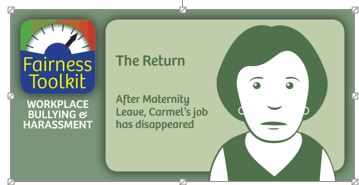A smartphone app designed to be used to confront bad behaviour and dodgy ethics in the workplace will be released later this year.
Government News spoke to Howard Whitton from Brisbane company Ethicos, which is behind the app, about how it can be used to ensure public servants are more ethical, knowledgeable and better behaved.
One of the big selling points of the Ethicos app is an issue-specific Fairness Toolkit of short animations based on real-life scenarios and covering areas such as workplace bullying, sexual harassment, conflict of interest, fraud, identity theft, misconduct and abuse of office.
Mr Whitton and his Ethicos Group colleagues, most of whom have been specialising in ethics and integrity in Australia’s State and federal public services for over two decades, says each of the scenarios is designed to present “a short slice of life in a realistic way.”
“We aim to keep people out of trouble and institutions out of court,” Mr Whitton says. “We talk about “show and ask”. Our scenarios test whether an individual is able to identify ethical problems correctly, so that organisations and employees can assess their risks and strengths and target ethics training to individuals.”
Animations get to the heart of the issue, without employees wading through 400 pages of the Code of Conduct or conflict of interest guidelines, he says.
For example, one scenario deals with workplace bullying, gender discrimination and exclusion.
Carmel’s colleague Clinton is constantly putting down, trashing her ideas, excluding her from meetings and patronisingly calling her ‘dear old thing’.
When Carmel informs her boss about Clinton’s behaviour he brushes her aside, telling her to “settle down.”
The boss says: “It’s probably your hormones. You’re just depressed. There’s no time for this now, Carmel, ok?”
The most commonly requested videos by corporations are about workplace bullying, sexual harassment, conflict of interest and misconduct. There are also requests for information on conducting workplace investigations and whistleblowing.
Mr Whitton says local councils could also benefit from the app, particularly where council officers are being told by mayors or councillors to do something that makes them feel uncomfortable.
“Often the mayor or councillor doesn’t understand what they’re asking and it’s really difficult for local government officers to say “no, you can’t do that,” Mr Whitton says. “They’re increasingly concerned about being pulled up by ICAC.”
Tertiary education providers have shown a keen interest in the app too, particularly as more problems come to light around fudging research results, grant fraud, the sexual harassment of female academics, workplace bullying and plagiarism.
“Universities have told us that workplace bullying is a problem. Some have also said, “we have a problem getting academics to understand conflict of interest, especially in research.”
Some videos are specially tailored to particular organisations. For example, Emergency Services want videos to depict familiar characters in specific uniforms and using realistic language and situations.
The app can also be downloaded by individuals facing difficult situations at work and can give advice on how to deal with a situation and who to talk to.
But about three-quarters of people who watched the videos failed to recognise all the ethics breaches that they are watching.
Asked why he thought the number was so high, Mr Whitton replies: “because these days they’re not trained. People only see what they have been trained to see in a relevant context.”
“In the last ten years [ethics training] has been pretty much non-existent,” he says. “There was a flurry in the nineties to do Code of Conduct training – which we were part of – but we know that there’s a huge gap between people knowing what’s in the code of conduct training and actually recognising a problematic situation when it happens in front of them.
“If you expect people in any walk of life to play by the rules then they have to be told what the rules are, and broadly speaking, we don’t do that anymore. We talk about ‘Values’ instead.”
He said the Victorian state public service generally did a better job on ethics training than anybody else in the country.
The app costs around $10 per person per year for a medium-sized company or government agency.






Leave a Reply